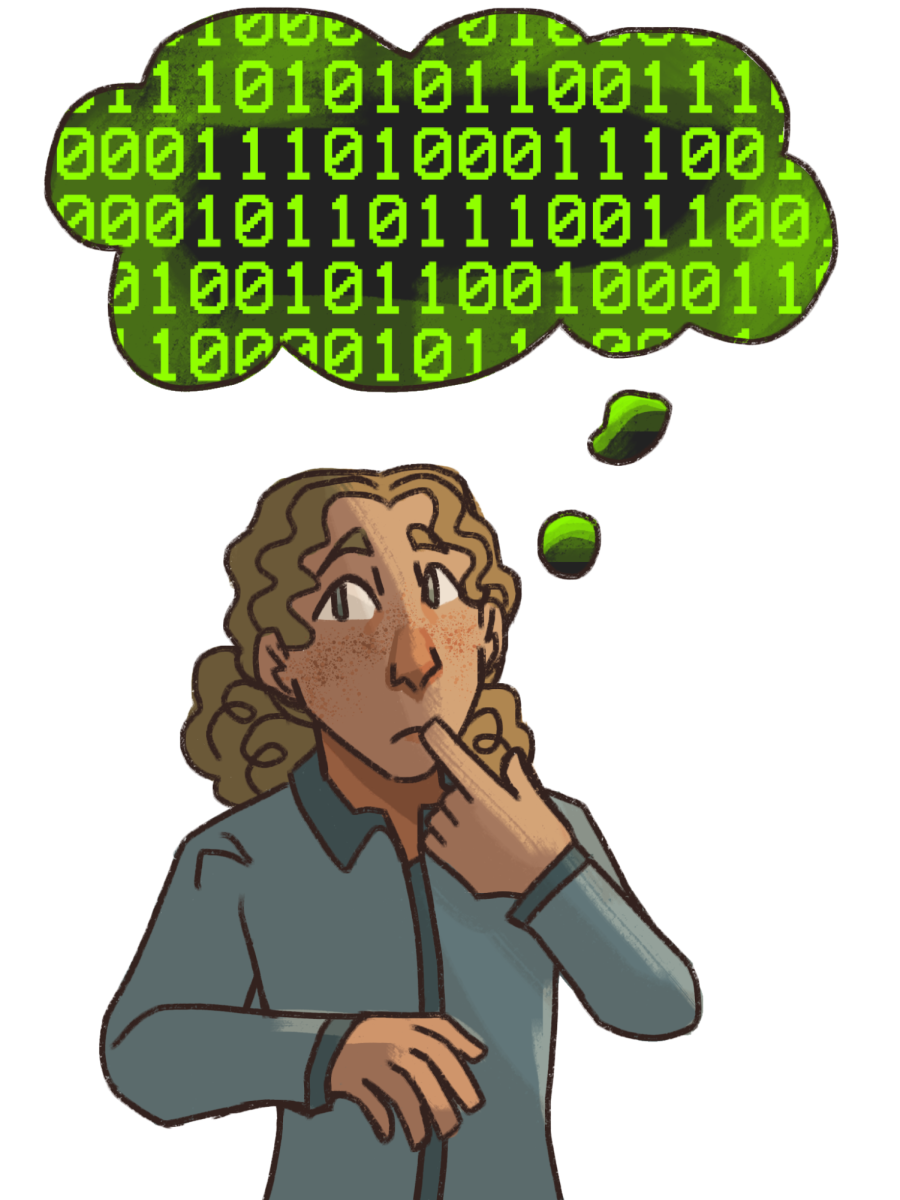As artificial intelligence spreads into creative fields, it’s like a silent conductor, orchestrating art, music, and literature with precision but stripping away the spark of human imperfection. Are we witnessing a renaissance led by machines, or is it a slow, quiet erosion of the very soul of creativity?
Our creativity stems from the very first moment we were born. The image of our parents cradling us tight in our arms, right out of the womb, marks the beginning of our journey through creativity where thoughts/images in our mind flash before us. As we get older, these basic images, thoughts, and experiences we once had, form into new ideas, solutions, and unique possibilities we can choose in our lives.
Now with the emergence of generative AI technology, writing, videos, and audio can all be created by AI, and sometimes it’s even better than human-made work. With this rapid improvement of AI, identifying what was and wasn’t generated by AI becomes increasingly difficult. For example, the first paragraph of this article was completely generated by AI.
Naturally, arguments surrounding AI have continued to heat up due to its capability to emulate, or even improve on human works. Consequently, it prompts the question: Will AI destroy human creativity?
The answer is yes. AI, although it cannot directly replicate a human’s innovativeness, will cause immense job losses in the creative industry, and discourage workers from pursuing careers in this field.
According to Joseph Huang, executive director of Strategic Research Initiatives at Stanford, AI is just an algorithm.
“At its heart, these algorithms are just math, just lots and lots of calculus and algebra,” Huang said. ”It [AI] doesn’t have judgment, it doesn’t know what’s right or what’s wrong, it will only repeat the pattern.”
Essentially, AI is a pattern recognition machine, an algorithm fed with an enormous data set. Within the data collected, AI can then respond and formulate new information. However, AI can only compile the data it is given and suggest new possibilities in writing, math, or art, but thinking outside the box, or rather outside the data set, would require breaking from the pattern. However, with our current-day limitations, this isn’t currently possible.
This is what differentiates AI from a human’s creativity. Humans have the ability to be innovative, creative and unconventional, key aspects that AI has trouble with. However, AI excels at producing work that is almost or as good as humans at a much cheaper rate.
Originally, AI was seen as more of a secretary or helper than anything else; it could help you with your physics homework, or give you a recipe for cooking. At its core, AI was only supposed to get rid of mundane and time-consuming tasks but this idea has quickly been proven false.
Take for example the movie industry. In a study conducted by Future-Unscripted, three-fourths of surveyed Hollywood leaders said they believed GenAI supported the elimination, reduction, and consolidation of jobs in their business division.
The Future-Unscripted study also predicts that about 21.4% of film, television, and animation jobs (or approximately 118,500 jobs) are likely to have a sufficient number of tasks affected to be either consolidated, replaced, or eliminated by GenAI in the U.S. by 2026.
Once AI is fully capable of recreating creative works like movies, and music, companies will not be incentivized to pay more money to hire human workers. As a result, pursuing jobs in creative industries will not be plausible, because companies would not be willing to hire.
For example, in art, the impact of generative AI on the industry has already been felt by many.
Within the field, AI still does not possess the ability to replicate the long grueling process and emotion that goes into the paintings. However, it still has the power to devalue art. If a program can generate a painting that is as beautiful as another artist’s work in a matter of seconds, it takes away from the awe and respect of that original work.
“There’s already a negative bias towards the creative industry,” Dapo Adeola, winner of the 2022 Illustrated Book of the Year at the British Book Awards said in an article by The Guardian. “Something like this reinforces an argument that what we do is easy and we shouldn’t be able to earn the money we command.”
Now it should still be noted that AI is extremely beneficial to many different industries. Specifically, in the creative industry, AI allows people to pursue photography, video making, or art even if they don’t have the professional skills nor the time to fully devote themselves to it.
Huang likens the creation of the iPhone in the photography industry to AI in the creative industry.
“So now, it used to be a very expensive hobby by people who are working already or who are professionals in this field, but now everyone’s a photographer,” Huang said. “Is that better or worse or just different?”
Just like with the introduction of the iPhone, now people can pursue hobbies with more ease than before due to generative AI. But in the professional world, the future seems more dire. AI’s ability to replicate art, music and movies will certainly change the creative industry forever, and cause hundreds of thousands of jobs to be lost.
We must also push for legislation that protects artist’s work, and prioritize human-made work over AI-generated products. Nevertheless, we must understand that AI will continue to be a part of our lives, whether it is simple management tasks or writing our essays. Within these problems, we must act to stay informed and become involved in finding the balance between innovation and integrity.
“Absolutely, some jobs will be destroyed,” Huang said. “But I’m hoping that the benefit to the society at large is greater than those jobs that are destroyed.”
